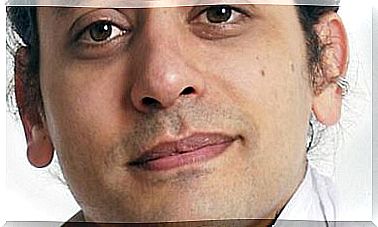Generosity Is A Prerequisite For A Happy And Abundant Life
Selflessly offering care or help creates a ripple of happiness. Not only does it benefit others, it connects you to your goodness and helps you overcome mistrust and fear.

As the saying goes: hands that you do not give, what do you expect? Popular wisdom thus reminds us that without generosity it is not possible to enjoy a kind and abundant life. However, some people argue their lack of solidarity towards the most disadvantaged saying that they are not going through a situation to shoot rockets either.
In general, it seems more natural to ask than to give, as if only once basic needs are covered (work, income, free time, happiness …) it was possible to offer others a part of what is left over. But do you really have to get everything you want first in order to be able to help others?
What if it were true that without generosity you cannot experience true fullness ?
Learn to give and receive
The prayer of Francis of Assisi puts into words a wise aspiration: “May I not seek so much to be consoled as to console, to be understood as to understand, to be loved as to love. Because it is by giving that you receive, forgetting how you find yourself, forgiving how you are. forgiven…”.
In India, the law of karma would say that a person receives in line with what he gives. In other words, if someone makes excuses for not giving something, it is very likely that others will, in turn, present their own reasons why it is impossible for them to help out.
And on the contrary: if we offer an openness and a disposition to favor those who are next to us, it is easy for that surrender to return like the sound of an echo. By choosing that route we will obtain abundant reasons to smile. Day by day, life will surprise us with its gifts, since all the good we offer tends to come back to us multiplied.
Life gives you back what you give
Gandhi said, “You must become the change you wish to see in the world.” That maxim could apply to all aspects of life. If we want to obtain wealth from others, let us give wealth. If we want to get kindness, give kindness. If we want to get love, give love.
In a society where the belief prevails that giving without asking for anything in return is absurd, putting it into practice can seem like a titanic task. But in reality it is as revolutionary as it is simple.
A first step is to conceive life as a mirror and understand that the image that the surface reflects will be the one that each one puts forward. Is the mirror going to return an image of joy, well-being, or generosity if we clothe ourselves with sadness, regrets, or selfishness?
The attitude of openness begins in our relationships with those closest to us. It may be helpful to do so guided by one of the principles of Buddhism: “I will act for the benefit of other beings as much as possible.”
Work generosity
What are those attitudes with which we can begin to work true generosity? Some are as elementary as:
- Wish the good of the people around us at all times, even if we do not know them.
- Offer help even if they do not ask for it in situations in which we know that this small action can make life easier for the other, such as when a friend leaves for a trip and needs to leave their pet in the care of someone.
- Cultivate kindness in everyday situations with strangers, such as giving up the shift in the supermarket, paying the bus ticket to the passenger who does not have loose or helping an acquaintance with the move without having to ask us.
- Purify the intentions of our actions, because many times it is not so much about what to do but about the intention with which we act. And the priority in this case would be the good of others. For example, accepting a surprise guest in a good mood instead of taking it as a nuisance is an example that reminds us of not doing to others what you do not want for yourself.
- Prioritize the happiness of the other over your own, keeping in mind that, as the Dalai Lama says, “a good heart is the root and source of true progress.”
Generosity makes us happier (everyone)
Everything that we manifest and think generates in a certain way an expansive wave around us that returns to us like a boomerang, tinged with the same vibrations.
What we sow today will bear fruit tomorrow, hence solidarity and empathy in social relationships are essential if we want to feel daily that our life is full and abundant in positive emotions and sensations.
“Although it seems ironic – says the psychologist Sonja Lyubomirsky in The Science of Happiness (Ed. Urano) – being kind and acting in a good mood, even when it is something unpleasant or one does not expect or receive anything in return, can also redound For your own benefit, because being generous and willing to share makes people happy. “
Dr. Dan Baker Cameron Stauth shares that opinion: ” Doing something good is a pleasant act in itself. It awakens love and links us to others. When this bond is formed, we not only experience a better feeling for the person we are we help, but also for all people in general. And it reduces any mistrust that we may have had, “he explains in his book What Happy People Know (Ed. Urano).
Other benefits of being generous
But the benefits for those who give go much further:
- Generates a more altruistic and generous image of oneself, which increases self-confidence.
- More optimism and a sense of being useful on a social level.
- It promotes empathy towards others and helps to create closer bonds.
- It helps to spread an image of kindness and, consequently, others end up reciprocating in a similar way.
Break the fear of opening up to others
As the specialists defend, giving generates infinite advantages, starting with the fact that it increases our confidence and brings us more happiness and fulfillment. The question would be: why don’t we put it into practice more often? The answer depends on each person but a common denominator is usually fear, the number one enemy of generosity.
For many people, interacting with strangers is an opportunity for learning and personal enrichment. However, sometimes others may see in “others” a threat, a competitor or an opponent who is better not to trust just in case. In this way they tend to distance themselves and isolate themselves for fear that these other people will control them, make them lose certain limits of intimacy or deprive them of something, whether in a material or emotional sense.
It is obvious that with this distrust it is very difficult to open up and maintain a detached attitude. Christopher Hansard tells in The Tibetan Art of Serenity (Ed. Urano) that we often look at what distinguishes us from others rather than what we have in common.
“Instead of relating to others with an affectionate attitude, we do so with mistrust, hostility or doubt, because deep down we are afraid … We live in times full of anxiety, and this means that fear is becoming a normal part of life for many people, “he says.
Oddly enough, this type of suspicion can only be cured by making a leap of faith and giving yourself 100% without caution. “Constantly believing in the goodness of others allows fear to be transformed into serenity. And in the face of serenity, fear loses its strength and evolves into knowledge, love and understanding,” says Hansard.
The love appears, if not the engine, if the necessary ingredient to make the recipe for happiness itself by offering the best of oneself to others at all times. Sometimes, with gestures as simple as the elevator companions smile and say good morning or good afternoon, for the mere pleasure of creating harmony in that moment.
Knowing how to receive is also generous
Many people go out of their way for their friends or family members, yet when they need help, they build a wall and reject anything that comes from outside. With this attitude, they prevent life from being generous with them and, what is worse, they feed the tendency to complain, considering that they give a lot and receive little in return.
We have to give ourselves the opportunity to receive. But how?
- Accept and appreciate selfless praise – you deserve it too.
- Being a recipient of help from others is a way of empowering the other to develop their generosity. Allow it.
- Receiving is an act of trust in others and that enhances relationships of solidarity. Promote them.
Forgiveness frees
But what happens to a person who has offended us or with whom we have had an argument or we feel distant? Perhaps these are the situations in which it is most difficult to overcome pride and become capable of understanding each other.
These are times when you have to make an effort and broaden your point of view, seeking a more spiritual and less psychological perspective, since we can only approach through acceptance and forgiveness, if that were the case.
“In practice it does not matter if a person deserves to be forgiven. Forgiveness is a gift that you offer yourself because by forgiving you let go of the burden of pain and bitterness that you carried within,” explains Hansard.
Once free of that anxiety and feeling of discomfort, it is easier to share. Giving and delivering happiness, offering what fulfills us or what we consider good for someone with the purpose of giving them well-being, contributes to happiness appearing in our environment as a result of our actions.
We are all connected
Maintaining this attitude for a day or a week may seem easy, but the challenge is knowing how to be constantly generous as a habitual dynamic in our life.
One of the useful tools to achieve this is to be aware of the interrelation of all beings, which are connected in a great web. From that point of view, individuality does not exist as something separate from the rest, but as a part of the total gear, so the actions that we carry out with another person will be, in a certain sense, actions that we dedicate to ourselves. .
“If you hurt your opponent, you hurt yourself”, said Morisei Ueshiba, creator of the martial art of aikido, in his work The Art of Peace (Ed. Kairós). And that sticker that used to be seen on cars also remembers it with irony: “May God give you what you want for me.”
Transmitting happiness, love and joy will make life simpler, fuller and more abundant for oneself and for everyone.









